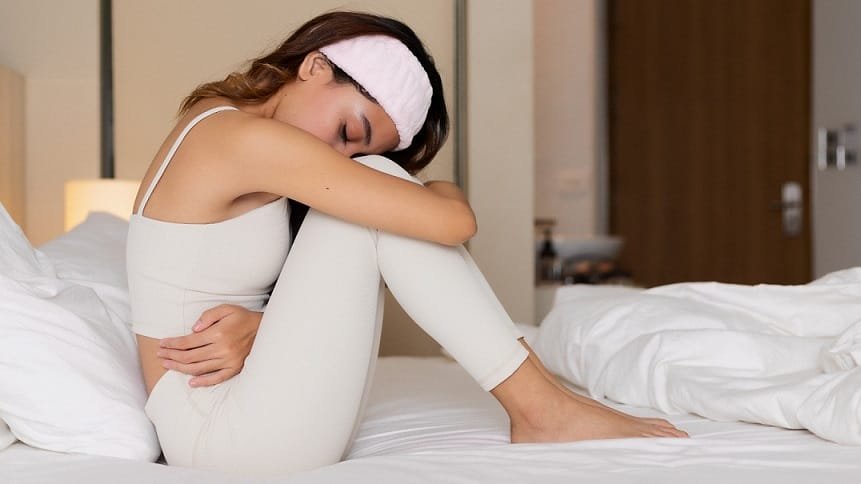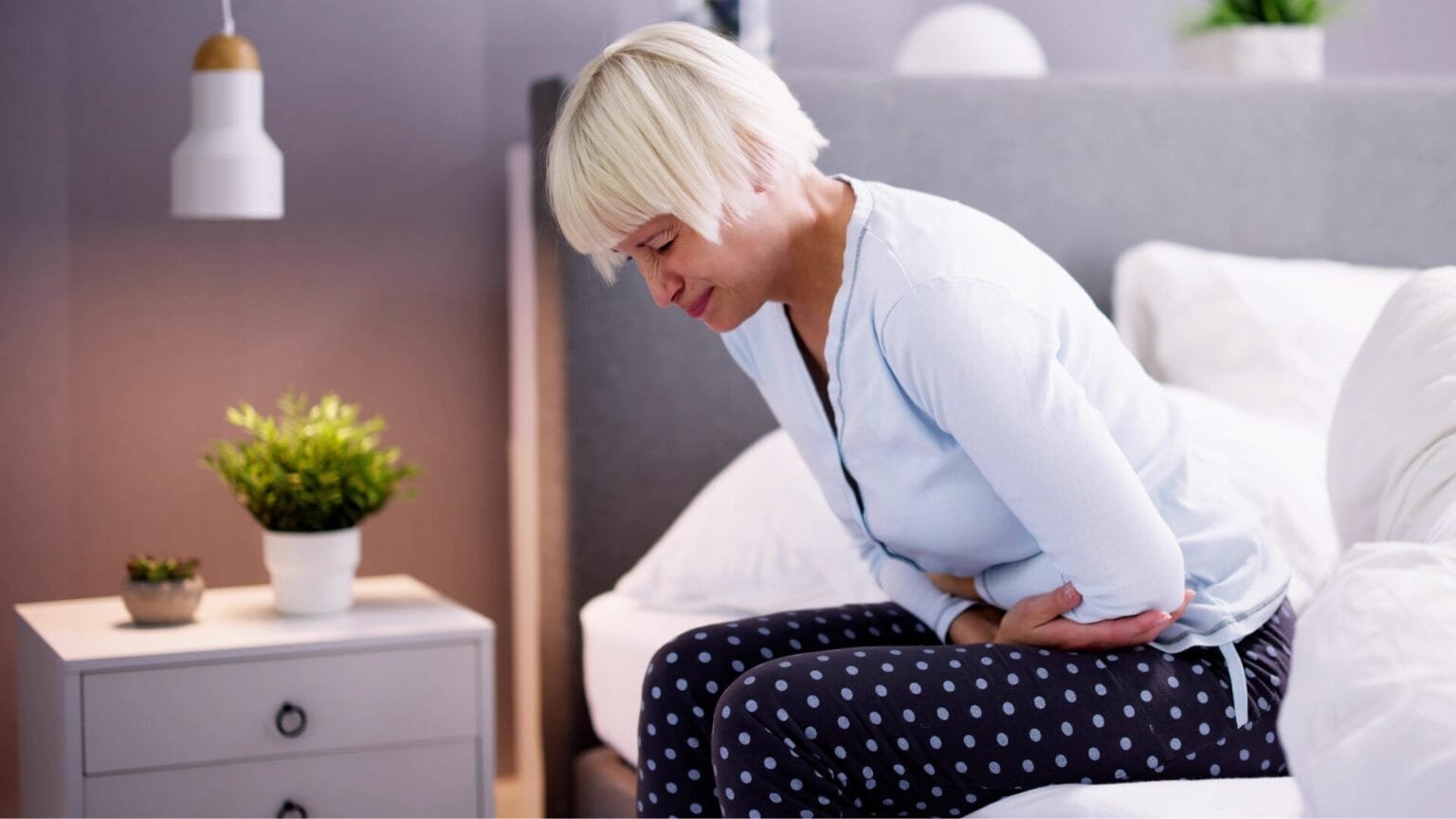Best Practices to Cope with Period Pain
For many women, dealing with period pain is an unfortunate monthly reality. The cramps, bloating, and discomfort can disrupt daily routines and make it challenging to concentrate and stay productive. While there is no foolproof way to eliminate period pain entirely, there are several best practices that can help alleviate the discomfort and make this time of the month more bearable. In this article, we will look at five effective strategies to cope with period pain. From adopting a healthy lifestyle and practicing self-care techniques to leveraging natural remedies and seeking medical advice, these tips will empower you to banish the pain and reclaim control over your menstrual cycle. Say goodbye to suffering in silence and discover here 5 best practices to cope with period pain.
Adopting a healthy lifestyle
When it comes to coping with period pain, adopting a healthy lifestyle can play a significant role in alleviating discomfort and promoting overall well-being. Making a few simple changes to your daily routine can make a world of difference during your menstrual cycle. One of the most effective ways to manage period pain is to prioritize regular exercise. Engaging in physical activity releases endorphins, which are natural painkillers that can help reduce menstrual cramps. Incorporating low-impact exercises like walking, yoga, or swimming into your routine can provide much-needed relief.
Maintaining a balanced and nutritious diet is another crucial aspect of managing period pain. Opt for foods rich in vitamins and minerals such as fruits, vegetables, whole grains, and lean proteins. Additionally, avoid excessive consumption of caffeine, alcohol, and processed foods, as they can exacerbate inflammation and intensify discomfort. Stress management is also key in minimizing period pain. High levels of stress can intensify physical symptoms. Engaging in relaxation techniques like deep breathing exercises, meditation, or practicing mindfulness can help reduce stress levels and promote a sense of calm.
Adequate sleep is essential for overall health and well-being, especially during menstruation. Creating a sleep routine, ensuring a comfortable sleeping environment, and practicing good sleep hygiene can contribute to better sleep quality, reducing fatigue and minimizing pain. Lastly, maintaining proper hydration throughout your menstrual cycle is essential. Drinking an adequate amount of water can help reduce bloating, cramping, and inflammation, providing relief from period pain. By adopting a healthy lifestyle that includes regular exercise, a balanced diet, stress management, sufficient sleep, and proper hydration, you can significantly alleviate period pain and improve your overall well-being. Remember, it’s essential to listen to your body and tailor these practices to suit your individual needs.
Practicing Self-care Techniques
During that time of the month, period pain can be a real challenge for many women. However, with the right self-care techniques, it is possible to find relief and banish the pain. One of the best practices for coping with period pain is to prioritize self-care. This means taking the time to listen to your body and give it what it needs. Start by creating a relaxing environment, whether it’s a cozy corner in your home or a warm bath with soothing essential oils.
Engage in activities that help you unwind and de-stress, such as reading a book, practicing yoga, or meditating. Taking care of your physical health is equally important. Make sure to eat a balanced diet rich in fruits, vegetables, and whole grains to provide your body with the necessary nutrients. Regular exercise, even light activities like walking or stretching, can also help alleviate period pain by improving blood flow and releasing endorphins.
Don’t forget to prioritize rest and sleep during your period. Getting enough rest allows your body to heal and rejuvenate, which can significantly reduce pain levels. By practicing these self-care techniques, you can effectively cope with period pain and reclaim control of your life during that time of the month.
Leveraging Natural Remedies
When it comes to coping with period pain, many people are seeking natural remedies as a way to banish the discomfort. Natural remedies are not only effective but also offer a gentler approach to managing period pain compared to relying solely on medication. One of the best natural remedies for period pain is heat therapy. Applying a warm compress or using a heating pad on your lower abdomen can help to relax the muscles and alleviate the pain. This method is easy to do and can provide quick relief.
Another effective natural remedy is herbal teas. Certain herbs, such as ginger, chamomile, and peppermint, have anti-inflammatory properties that can help ease menstrual cramps. Sipping on a hot cup of herbal tea can provide soothing relief and promote relaxation.
Exercise is also a great way to naturally manage period pain. Engaging in light physical activity, such as walking or gentle stretching, can help to increase blood flow and release endorphins, which are natural pain relievers. Regular exercise leading up to and during your period can help reduce the intensity of cramps.
Incorporating certain dietary changes can also play a role in alleviating period pain. Consuming foods rich in omega-3 fatty acids, such as fatty fish, walnuts, and flaxseeds, can help reduce inflammation and ease cramping. Additionally, adding more fruits and vegetables to your diet can provide essential vitamins and minerals to support overall reproductive health.
Stress and tension can exacerbate period pain, so finding ways to unwind and de-stress can make a significant difference in managing discomfort. While natural remedies may not completely eliminate period pain for everyone, they offer a holistic and gentle approach to coping with the discomfort. It’s important to listen to your body, try different remedies, and find what works best for you. By leveraging these natural practices, you can empower yourself to banish the pain and embrace a more comfortable menstrual cycle.
Seeking Medical Guidance
While there are several self-care practices that can help alleviate period pain, it’s important to recognize that severe or debilitating pain may require medical attention. If you find that your period pain is interfering with your daily life or becoming increasingly intense, it’s advisable to seek medical advice.
Consulting with a healthcare professional can help identify any underlying conditions or hormonal imbalances that may be contributing to your pain. They can also provide guidance on suitable pain management options, such as over-the-counter pain relievers, hormonal treatments, or alternative therapies.
Remember, everyone’s experience with period pain is unique, and what works for one person may not work for another. Don’t hesitate to reach out to your healthcare provider for personalized advice and support in managing your period pain.
Conclusion: 5 Best Practices to Cope with Period Pain
In conclusion, coping with period pain doesn’t have to be a daunting experience. By incorporating these 5 best practices to cope with period pain, including adopting a healthy lifestyle, practicing self-care techniques, leveraging natural remedies, and seeking medical guidance when needed, you can effectively manage discomfort and improve your overall well-being. Remember, every woman’s body is unique, so it’s essential to find the methods that work best for you. Embrace these strategies to banish the pain and reclaim control during your menstrual cycle.




